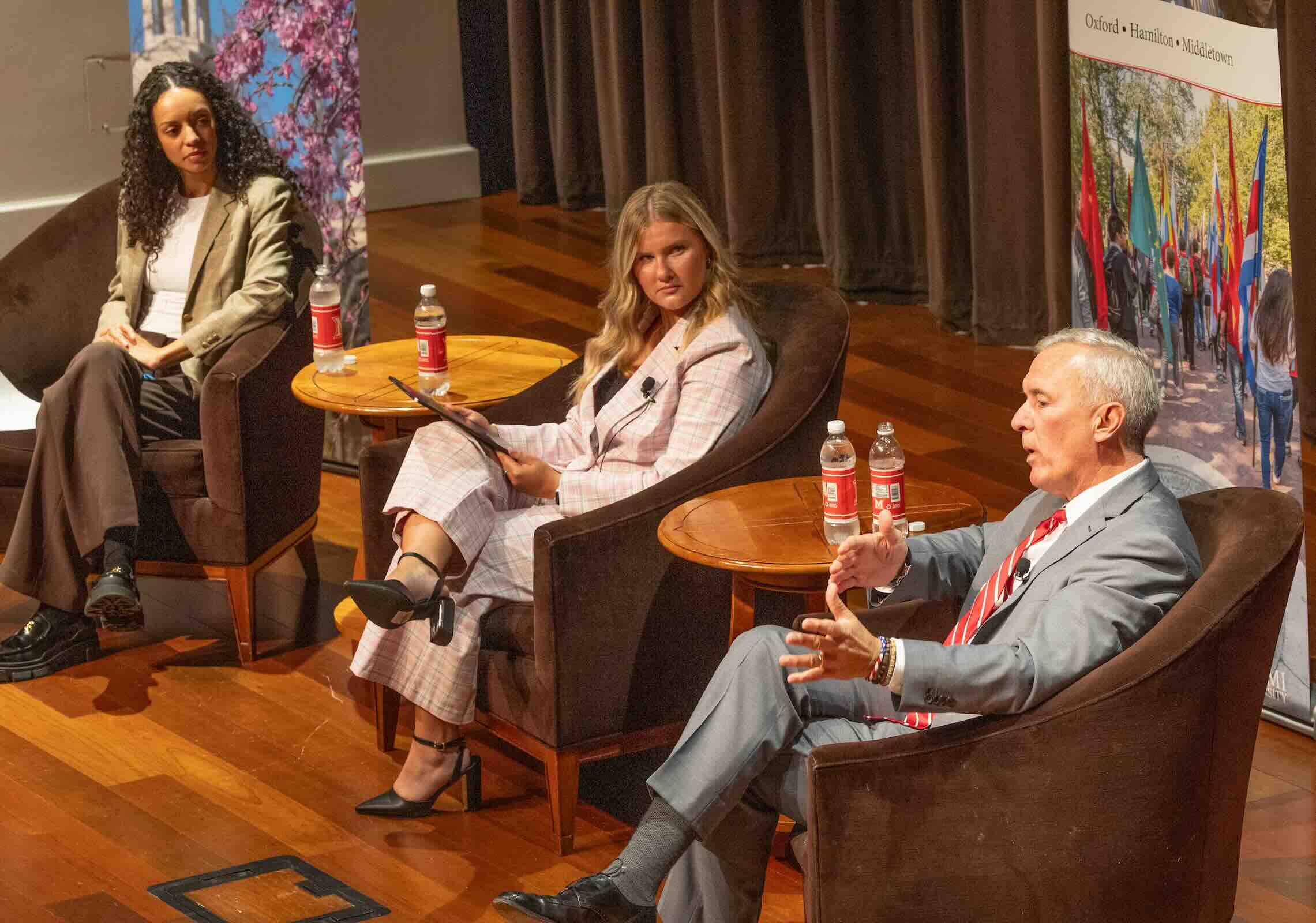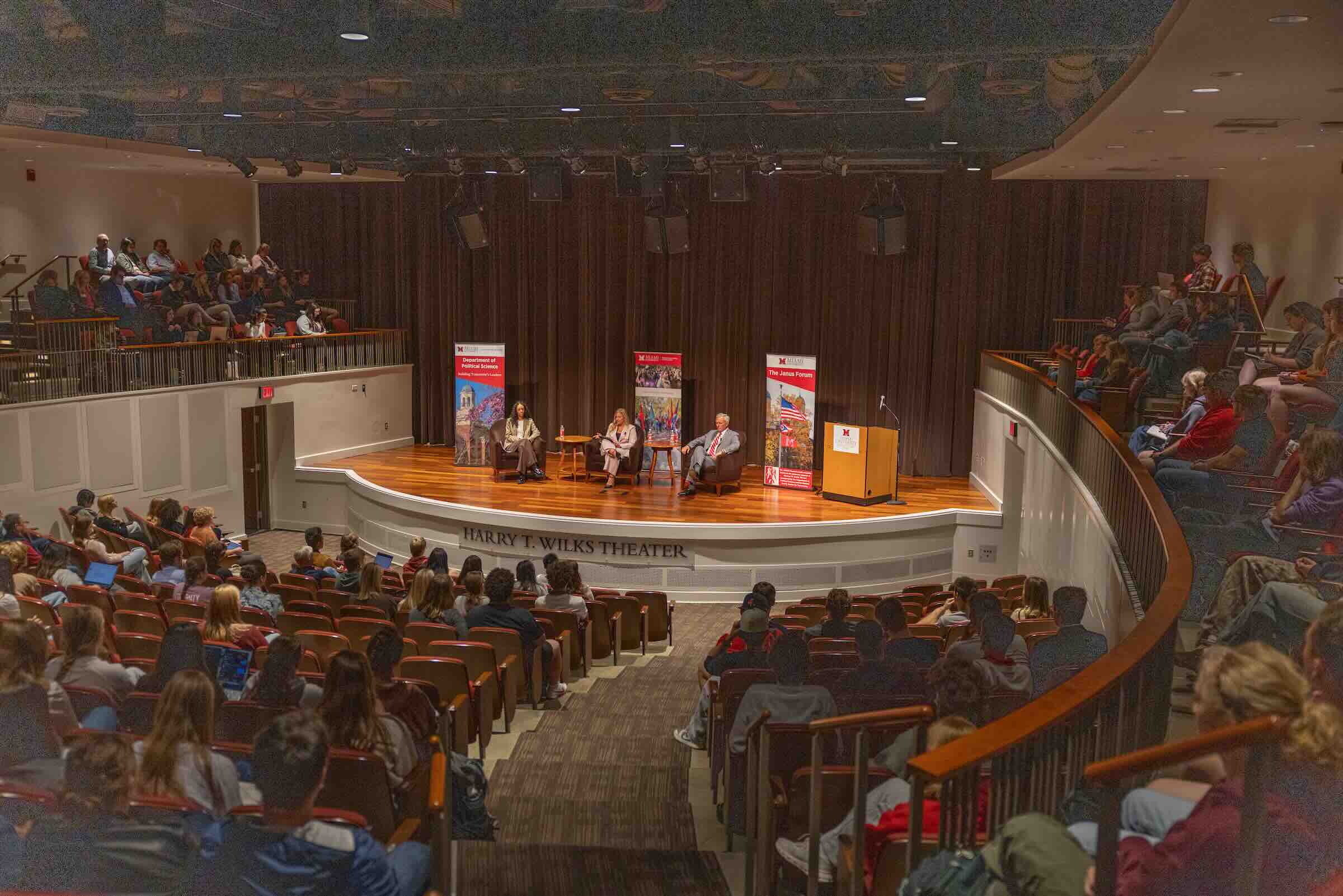Debating the presidency: Janus Forum speakers examine executive power
The event brought together leading experts and students to explore how the balance of power among the branches of government shapes American democracy in today’s climate.

Debating the presidency: Janus Forum speakers examine executive power
Miami University’s Armstrong Student Center Pavilion filled with students and faculty for this semester’s Janus Forum, which tackled one of the most pressing constitutional questions of our time: Has the presidency become too powerful?
The forum, titled “Debating Energy in the Executive – Trump and Presidential Power” featured Caitlin Dickerson, Pulitzer Prize-winning journalist for The Atlantic, and Hon. John Katko, former U.S. representative and federal prosecutor. The discussion was moderated by Hailey Sellett, a senior Political Science and Data Analytics major who also serves as president of the Janus Forum.
In her opening remarks, Dickerson emphasized that the United States was founded on the idea of limiting centralized power. “From the very beginning, the Founding Fathers had in mind this idea of never allowing one person to take too much power,” she said. “But it doesn’t seem that way recently.”
She argued that recent administrations, particularly President Trump’s, have pushed the boundaries of executive authority through broad emergency declarations and military actions without congressional approval. “We need a healthy Congress, a healthy judiciary, and a free and fair press,” she said. “When any one of those is weakened, democracy itself becomes fragile.”

Katko, drawing on his eight years in Congress, agreed that executive power has expanded but noted that the problem transcends party lines. “Every modern president has tested the boundaries of power,” he said. “Trump isn’t the first; he’s just done it more aggressively.”
He also stressed the importance of bipartisanship, citing examples of past cooperation between political opponents such as Ronald Reagan and Tip O’Neill. “We’ve got to get back to the point of accepting that people who disagree with you aren’t bad people,” Katko said. “If we don’t, we’ll see more division and more vitriol.”
Throughout the evening, the speakers discussed issues ranging from immigration and the Deferred Action for Childhood Arrivals (DACA) program to the use of the National Guard in domestic affairs. Dickerson described the rapid reversal of executive actions between administrations as “deeply destabilizing,” while Katko called it “a symptom of congressional paralysis.”
Moderator Hailey Sellett reflected on the event’s purpose. “The Janus Forum is designed to bring together voices from across the political spectrum,” she said. “Our goal is to model what civil discourse can look like, to show that disagreement doesn’t have to mean division.”
Students in attendance echoed that sentiment. Caitlyn Buzzard, a junior majoring in International Studies, Linguistics, and East Asian Languages and Cultures, described the event as “mind-blowing.” She added, “It shows how we can engage in critical discourse and actually learn from each other. I’d love to see even longer sessions or multi-day discussions like this in the future.”
By the end of the evening, one message resonated clearly: preserving democracy requires both institutional balance and individual responsibility. The forum left attendees with a renewed sense of the importance of listening, questioning, and engaging, principles at the heart of both the Janus Forum and Miami University’s liberal education mission.